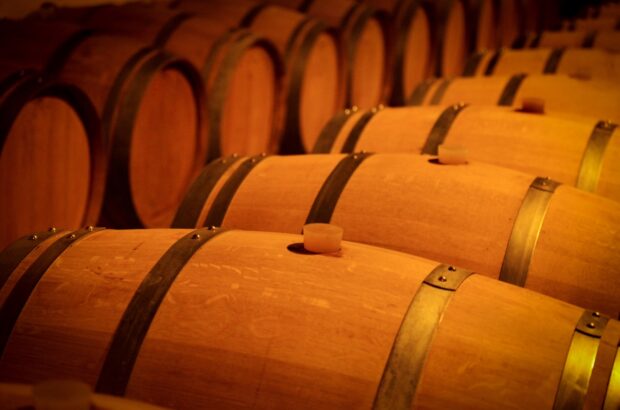Veganism is going mainstream and early signs suggest that wine could be one of the focal points for debate in 2018.
The UK’s Co-op retailer has said it plans to expand its vegan wine range to 100 labels this year and has challenged all of its wine suppliers ‘to make wines vegan where they can’.
Rival retailer Majestic Wine has added vegan and vegetarian symbols to the wine information on its relaunched website.
‘Vegan wines will not have been fined, filtered or come into contact with anything derived from an animal or dairy source,’ a Majestic spokesperson told Decanter.com. There were 32 vegan wines on the retailer’s website, although this varies month-to-month.

A view of Majestic’s new website, which tells shoppers whether a wine is vegan or not. Credit: Majestic Wine.
There are at least 542,000 people following a vegan diet in the UK, versus 150,000 10 years ago, according to the Vegan Society.
‘Veganuary’ has become one of the buzzwords of the season, backed by celebrities. Oscar-winning filmmaker James Cameron and long-time vegan Pamela Anderson are executive producers on a documentary about plant-based diets called Game Changers, to be released at the Sundance Film Festival on 19 January.
All of this has the potential to stir up debate about the identity of vegan wines and why some do not make the grade.
It could also re-kindle discussion around disclosure on wine labels.
Traditional fining agents, such as egg whites or casein, are used by some wineries to clarify finished wines, but there is currently no legal requirement to state this on labels in the European Union or US.
From the archive: Andrew Jefford talks about disclosure of additives in wine
‘I suspect that quite a lot of wine is vegan but the producer doesn’t necessarily put it on the label,’ said Kristin Syltevik, of the Oxney Organic Estate in East Sussex, England.
‘Traditional fining products that were egg/fish/milk derived have probably – we think – moved on to a lot of vegetable-based products.’
Some producers choose not to ‘fine’ their wines at all.
In terms of alternatives, some research work has focused on wheat-based fining agents, but the presence of gluten could be an issue and subsequent work has targeted pea and potato-derived products.
Tony Milanowski, a lecturer in wine production at Plumpton College in the UK, said that the issue also goes beyond fining.
He told Decanter.com, ‘Veganism is a broad church because people do it for dietary, ethical and/or environmental concerns.
‘Many vegans have stricter interpretations and would look to avoid beeswax (used to seal bottles) and agglomerated corks (which use milk-based glues), while others are not interested in these concerns [because the animal derivatives are not considered to be in the finished product].’
Unfined and unfiltered biodynamic wines may still fail some vegans’ethical standards depending upon the source of manure and animal parts (skulls, horns and organs) used in the vineyard, he added.
Additional editing by Chris Mercer.







